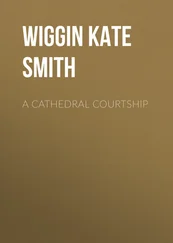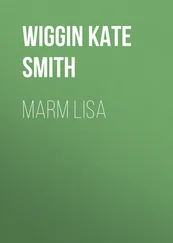Kate Wiggin - New Chronicles of Rebecca
Здесь есть возможность читать онлайн «Kate Wiggin - New Chronicles of Rebecca» — ознакомительный отрывок электронной книги совершенно бесплатно, а после прочтения отрывка купить полную версию. В некоторых случаях можно слушать аудио, скачать через торрент в формате fb2 и присутствует краткое содержание. Жанр: foreign_children, foreign_antique, foreign_prose, на английском языке. Описание произведения, (предисловие) а так же отзывы посетителей доступны на портале библиотеки ЛибКат.
- Название:New Chronicles of Rebecca
- Автор:
- Жанр:
- Год:неизвестен
- ISBN:нет данных
- Рейтинг книги:4 / 5. Голосов: 1
-
Избранное:Добавить в избранное
- Отзывы:
-
Ваша оценка:
- 80
- 1
- 2
- 3
- 4
- 5
New Chronicles of Rebecca: краткое содержание, описание и аннотация
Предлагаем к чтению аннотацию, описание, краткое содержание или предисловие (зависит от того, что написал сам автор книги «New Chronicles of Rebecca»). Если вы не нашли необходимую информацию о книге — напишите в комментариях, мы постараемся отыскать её.
New Chronicles of Rebecca — читать онлайн ознакомительный отрывок
Ниже представлен текст книги, разбитый по страницам. Система сохранения места последней прочитанной страницы, позволяет с удобством читать онлайн бесплатно книгу «New Chronicles of Rebecca», без необходимости каждый раз заново искать на чём Вы остановились. Поставьте закладку, и сможете в любой момент перейти на страницу, на которой закончили чтение.
Интервал:
Закладка:
Mrs. Cobb opened the door hastily, calling after her, “Rebecca, Rebecca, come back here! You mustn’t follow where you haven’t any right to go. If there’d been anything to say or do, I’d a’ done it.”
“He’s mine! He’s mine!” stormed Rebecca. “At least he’s yours and mine!”
“He’s his father’s first of all,” faltered Mrs. Cobb; “don’t let’s forget that; and we’d ought to be glad and grateful that John Winslow’s come to his senses an’ remembers he’s brought a child into the world and ought to take care of it. Our loss is his gain and it may make a man of him. Come in, and we’ll put things away all neat before your Uncle Jerry gets home.”
Rebecca sank in a pitiful little heap on Mrs. Cobb’s bedroom floor and sobbed her heart out. “Oh, Aunt Sarah, where shall we get another Jack-o’-lantern, and how shall I break it to Emma Jane? What if his father doesn’t love him, and what if he forgets to strain the milk or lets him go without his nap? That’s the worst of babies that aren’t private—you have to part with them sooner or later!”
“Sometimes you have to part with your own, too,” said Mrs. Cobb sadly; and though there were lines of sadness in her face there was neither rebellion nor repining, as she folded up the sides of the turn-up bedstead preparatory to banishing it a second time to the attic. “I shall miss Sarah Ellen now more’n ever. Still, Rebecca, we mustn’t feel to complain. It’s the Lord that giveth and the Lord that taketh away: Blessed be the name of the Lord.”
Second Chronicle. DAUGHTERS OF ZION
I
Abijah Flagg was driving over to Wareham on an errand for old Squire Winship, whose general chore-boy and farmer’s assistant he had been for some years.
He passed Emma Jane Perkins’s house slowly, as he always did. She was only a little girl of thirteen and he a boy of fifteen or sixteen, but somehow, for no particular reason, he liked to see the sun shine on her thick braids of reddish-brown hair. He admired her china-blue eyes too, and her amiable, friendly expression. He was quite alone in the world, and he always thought that if he had anybody belonging to him he would rather have a sister like Emma Jane Perkins than anything else within the power of Providence to bestow. When she herself suggested this relationship a few years later he cast it aside with scorn, having changed his mind in the interval—but that story belongs to another time and place.
Emma Jane was not to be seen in garden, field, or at the window, and Abijah turned his gaze to the large brick house that came next on the other side of the quiet village street. It might have been closed for a funeral. Neither Miss Miranda nor Miss Jane Sawyer sat at their respective windows knitting, nor was Rebecca Randall’s gypsy face to be discerned. Ordinarily that will-o’-the wispish little person could be seen, heard, or felt wherever she was.
“The village must be abed, I guess,” mused Abijah, as he neared the Robinsons’ yellow cottage, where all the blinds were closed and no sign of life showed on porch or in shed. “No, ‘t aint, neither,” he thought again, as his horse crept cautiously down the hill, for from the direction of the Robinsons’ barn chamber there floated out into the air certain burning sentiments set to the tune of “Antioch.” The words, to a lad brought up in the orthodox faith, were quite distinguishable:
“Daughter of Zion, from the dust, Exalt thy fallen head!”
Even the most religious youth is stronger on first lines than others, but Abijah pulled up his horse and waited till he caught another familiar verse, beginning:
“Rebuild thy walls, thy bounds enlarge, And send thy heralds forth.”
“That’s Rebecca carrying the air, and I can hear Emma Jane’s alto.”
“Say to the North,
Give up thy charge,
And hold not back, O South,
And hold not back, O South,” etc.
“Land! ain’t they smart, seesawin’ up and down in that part they learnt in singin’ school! I wonder what they’re actin’ out, singin’ hymn-tunes up in the barn chamber? Some o’ Rebecca’s doins, I’ll be bound! Git dap, Aleck!”
Aleck pursued his serene and steady trot up the hills on the Edgewood side of the river, till at length he approached the green Common where the old Tory Hill meeting-house stood, its white paint and green blinds showing fair and pleasant in the afternoon sun. Both doors were open, and as Abijah turned into the Wareham road the church melodeon pealed out the opening bars of the Missionary Hymn, and presently a score of voices sent the good old tune from the choir-loft out to the dusty road:
“Shall we whose souls are lighted
With Wisdom from on high,
Shall we to men benighted
The lamp of life deny?”
“Land!” exclaimed Abijah under his breath. “They’re at it up here, too! That explains it all. There’s a missionary meeting at the church, and the girls wa’n’t allowed to come so they held one of their own, and I bate ye it’s the liveliest of the two.”
Abijah Flagg’s shrewd Yankee guesses were not far from the truth, though he was not in possession of all the facts. It will be remembered by those who have been in the way of hearing Rebecca’s experiences in Riverboro, that the Rev. and Mrs. Burch, returned missionaries from the Far East, together with some of their children, “all born under Syrian skies,” as they always explained to interested inquirers, spent a day or two at the brick house, and gave parlor meetings in native costume.
These visitors, coming straight from foreign lands to the little Maine village, brought with them a nameless enchantment to the children, and especially to Rebecca, whose imagination always kindled easily. The romance of that visit had never died in her heart, and among the many careers that dazzled her youthful vision was that of converting such Syrian heathen as might continue in idol worship after the Burches’ efforts in their behalf had ceased. She thought at the age of eighteen she might be suitably equipped for storming some minor citadel of Mohammedanism; and Mrs. Burch had encouraged her in the idea, not, it is to be feared, because Rebecca showed any surplus of virtue or Christian grace, but because her gift of language, her tact and sympathy, and her musical talent seemed to fit her for the work.
It chanced that the quarterly meeting of the Maine Missionary Society had been appointed just at the time when a letter from Mrs. Burch to Miss Jane Sawyer suggested that Rebecca should form a children’s branch in Riverboro. Mrs. Burch’s real idea was that the young people should save their pennies and divert a gentle stream of financial aid into the parent fund, thus learning early in life to be useful in such work, either at home or abroad.
The girls themselves, however, read into her letter no such modest participation in the conversion of the world, and wishing to effect an organization without delay, they chose an afternoon when every house in the village was vacant, and seized upon the Robinsons’ barn chamber as the place of meeting.
Rebecca, Alice Robinson, Emma Jane Perkins, Candace Milliken, and Persis Watson, each with her hymn book, had climbed the ladder leading to the haymow a half hour before Abijah Flagg had heard the strains of “Daughters of Zion” floating out to the road. Rebecca, being an executive person, had carried, besides her hymn book, a silver call-bell and pencil and paper. An animated discussion regarding one of two names for the society, The Junior Heralds or The Daughters of Zion, had resulted in a unanimous vote for the latter, and Rebecca had been elected president at an early stage of the meeting. She had modestly suggested that Alice Robinson, as the granddaughter of a missionary to China, would be much more eligible.
Читать дальшеИнтервал:
Закладка:
Похожие книги на «New Chronicles of Rebecca»
Представляем Вашему вниманию похожие книги на «New Chronicles of Rebecca» списком для выбора. Мы отобрали схожую по названию и смыслу литературу в надежде предоставить читателям больше вариантов отыскать новые, интересные, ещё непрочитанные произведения.
Обсуждение, отзывы о книге «New Chronicles of Rebecca» и просто собственные мнения читателей. Оставьте ваши комментарии, напишите, что Вы думаете о произведении, его смысле или главных героях. Укажите что конкретно понравилось, а что нет, и почему Вы так считаете.












